By Ashvini Ranjan
The First World War took place between the Allied Forces (Britain, France and Russia) and the Axis Forces consisting of the Germans, Austrians and the Ottoman Empire. It lasted for four years from 1914 to 1918.
India too being a colony of the British Empire participated in the war. However, the Battle of Haifa that took place on 23rd September 1918 was fought by the 15th Imperial Services consisting mainly of the Lancer Regiments of the Indian Princely States of Hyderabad, Jodhpur and Mysuru. The soldiers were the personal armies of the Indian Princes. The battle that was fought has been described by historians as one of the fiercest and most daring encounters during the First World War.
My interest to learn about the event came about when our Prime Minister Narendra Modi during his visit to Israel in 2017, laid a wreath at the grave of Haifa where the historical battle had taken place. The Mysuru Lancers too were a part of the 15 Imperial Cavalry Regiment of the Allied Forces.
The grave at Haifa has the mortal remains of the soldiers who sacrificed their lives during this war. There was a sudden burst of interest to report on the hundred-year-old event that had gathered decades of dust and almost forgotten.
I was both surprised and conscience-stricken on how an event of such a magnitude is least mentioned or celebrated.The Lancer Regiment consisted of men of the very city we live who had displayed phenomenal valour in a place far from home which had a global significance. While as students we had read about various wars, campaigns, and invasions as part of our study of history, there was no record to enlighten us of the battle of Haifa, an event every Indian should feel proud of.
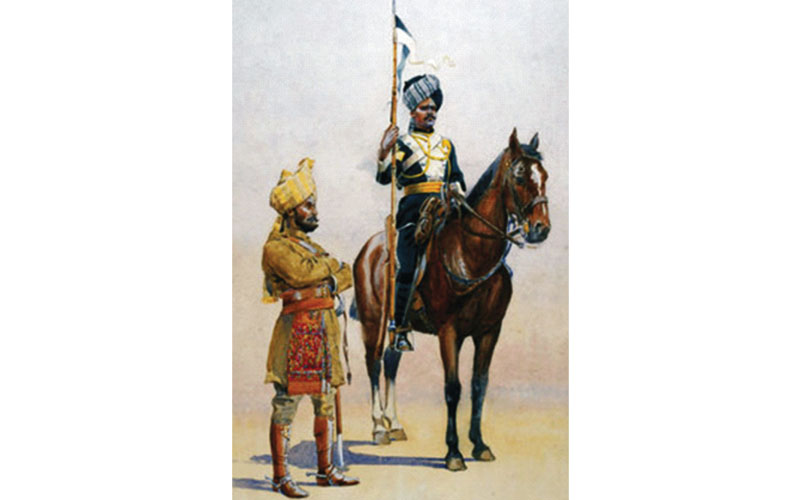
The importance of Haifa
Haifa is a major seaport located on Israel’s Mediterranean coastline in the Bay of Haifa. It was of great strategic importance to the Allied Forces during the First World War because of its deep water harbour and airfield. Haifa became one of the main supply bases and arms depot serving the Middle East forces. A large naval depot was established at Haifa Bay.
The Ottoman Turks who occupied the area were aware of its strategic importance and the advantage it would give to the Allied Forces if captured. The Turks heavily fortified the area with both men and weapons to ensure its safety. An attempt to capture this port was considered suicidal. This explains why a frontal attack was not considered as feasible option by the British. However, it is a matter of conjecture why the 15th Imperial Regiment consisting of the Indian Lancers to launch a daring attack. What motivated them to do so? Was it loyalty to their king or a clever ploy to do the impossible and take the enemy by surprise?
Nalwadi Krishnaraja Wadiyar
The then King of Mysuru Nalwadi Krishnaraja Wadiyar had handpicked a contingent of about 700 soldiers from his personal army as his gesture of support to the British Empire during the First World War. Those were the times when the Indian Princely States made extra efforts to please the British masters for their own survival and well-being.
The king also donated Rs. 50 lakh as his contribution to the war. He even wrote a spirited letter to his men urging them to prove that they were no less than the best fighting units anywhere in the world. In October 1914, the Mysuru Regiment left Bengaluru for Middle East. A convoy of 36 ships carried the troops from India to the Suez.
On hindsight, the decision to launch the daring attack was largely that of the Indian contingent and as a strategic move can now be termed ‘brilliant and unprecedented.’ The attack led by Major Dalpat Singh, considered the Hero of Haifa, not only captured and liberated the Port of Haifa but a total of 1,350 Turkish and German prisoners along with large quantities of arms and ammunition were taken possession.
In comparison to the victory that was achieved, the losses suffered by the 15th Imperial Regiment — 44 dead and 60 wounded — was insignificant. Major Dalpat Singh, who led from the front, was killed in action. The attack by the Indian Lancers has been recognised as the last great cavalry campaign anywhere in the history.
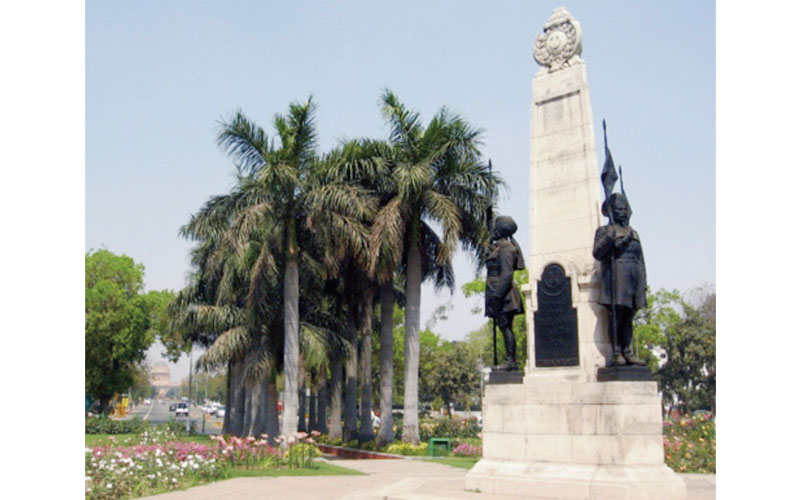
The forgotten heroes
In 1922, the British Government decided to recognise the services and heroism displayed by the armies of the Princely States of Jodhpur, Hyderabad and Mysuru. One of the major thoroughfares in Delhi was named Teen Murti Marg with statues of three soldiers representing the three Indian Princely States. But with the passage of time, the significance of the monument was forgotten and came to be associated with Mahatma Gandhi.
However, this historical fact was set right when Teen Murti Marg was renamed as Teen Murti Haifa Chowk during the visit of the Prime Minister of Israel Benjamin Netanyahu in January this year. Similarly, the monument erected at Bengaluru too is forgotten and today is in a dilapidated condition. Though the Indian Army observes 23rd September each year as Haifa Day, there is no other public event to celebrate the victory.
On the contrary, the State of Israel observes 23rd September with greater importance as it was the victory at this battle that was responsible for liberating the country from the Ottoman occupation. It is this victory that resulted in the formation of the State of Israel thirty years later. This explains the cordial relations between India and Israel since many years.
A hero’s welcome
The Indian contingent returned home in 1920 after participating in other campaigns by the British armies. The Lancers, who returned to Mysuru were accorded a hero’s welcome. There were several sessions to honour them at the Palace and in public places. The Lancers Units were merged with the Indian Army in 1950 and lost their distinct identity. While it is attractive to suggest that Mysuru city should erect a monument to celebrate its heroes, it would serve no purpose unless the memory is kept alive and periodically celebrated.



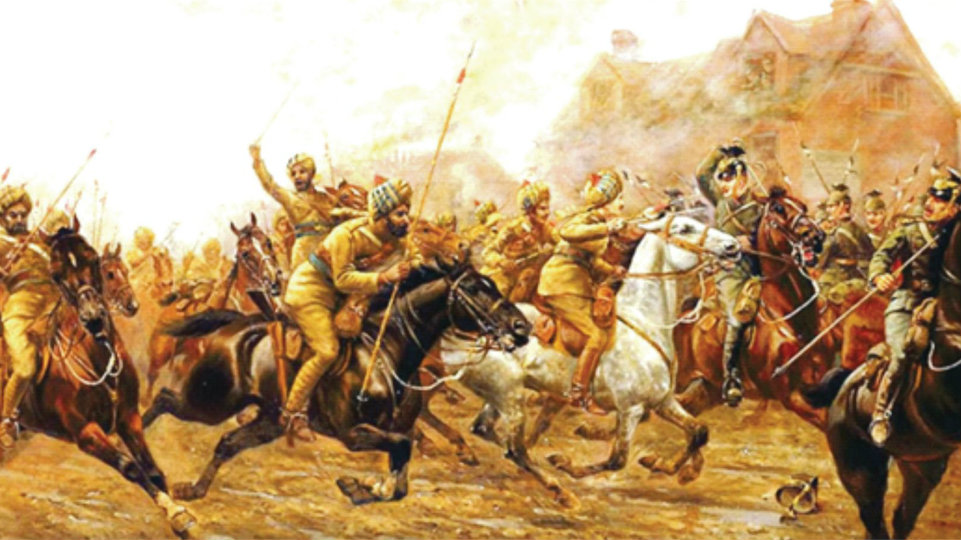
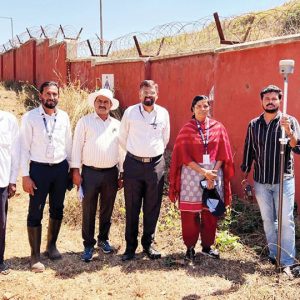
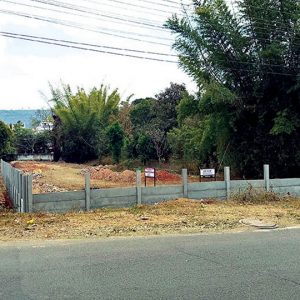
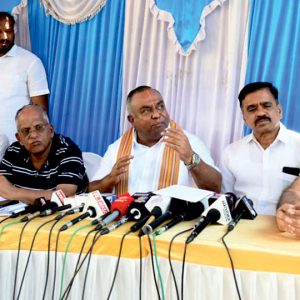
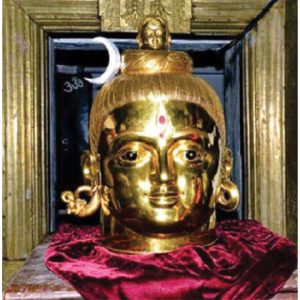
The History of the Mysore Lancers was eradicated, together with their colours and records of battle honours. by the PANGOLIN*s as Jabberlal Neckscrew intensely resented the Popularity of Nalvadi Krishna Raja Wadeyar and Jayachamarajendra Wadeyar and the reverence in which they were held. Jabberlal was deeply suspicious that the Mysore Forces would rally around the Maharajas and revolt against his tyranny. A suspicion that he had about all men in uniform if the truth be told.
While the Mysore Infantry was merged with the Madras Regiment, the Mysore Lancers was turned into the “Remount and Veterinary Corps” after being merged with similarly disfavoured Rajput Cavalry into the 61st Cavalry which was similarly suspected of having doubtful personal loyalty to Jabberlal Neckscrew, The resultant 61st Cavalry comprises Rajputs, Marathas and Kaimkhanis in equal numbers. This ratio was established on Prime Minister Jawarharlal Nehru’s instructions and excludes Mysoreans who were moved to the Remount and Veterinary Corps at that time.
.
The Mysore Lancers were initially raised by and trained by French Officers for the Mysore Army Cavalry that till then, comprised solely of mounted swordsmen. Their uniform and accouterments were similar to the French Chasseurs and featured Blue, White and Silver (rather than the traditional Red, White and Gold of the British and Indian Armies). They wore turbans instead of Shakos. Their swords were ordered from Damascus and were carried in hand carved sandalwood scabbards. (I have seen and handled one).
The Mysore lancers participated in action in China,and Africa as British allies. Their high point came when General Allenby used them in the taking of Jerusalem in the last Cavalry Charge in the World for which they were accorded Battle Honours.
The regiment recruits Rajputs, Marathas and Kaimkhanis in equal numbers. This ratio was established on Prime Minister Jawaharlal Nehru’s instructions. Note that Mysoreans were excluded from the 61st Cavalry since 1954 as per Jabberlal Neckscrew’s instructions
Both Training Command and Air Force Station Jalahalli are located on land that was originally that of the Mysore Lancers and ceded to the British by the Maharaja. The present home of the Indian Special Forces in Bangalore is still known as “Lancer Lines” to old Bangaloreans. The Lancer Lines in Mysore, near the Race Club is now the home of the Karrinayithikka Mounted Police.
The information I have put together here is what I have heard, for the most part, from two personal friends: (1) Rishaldar Major Devraj Urs of 61st Cavalry who was re employed after retirement as an instructor in the NCC and who I met in 1967 as an NCC cadet at Bangalore. He was in charge of equestrian activity in the Joint Services Wing (precursor of the NDA) at Dehradun when my Dad’s eldest brother (Air Force) was the Commandant and knew him well as he used to accompany him on daily horseback inspection at dawn. (2) Brigadier L.E.R.B.Ferris who was commissioned in the Madras Regiment but was transferred to the Gurkhas to fill the vacuum created by home going British Officers after Independence.
*Note: PANGOLIN: An enemy of India who believes in inequality under law, exceptions to the rule of law and persecution of some for the benefit of others. At present, the sole purpose of the Indian Republic, Constitutional or otherwise, is to pamper and provide for certain constitutionally preferred sections of society who the British found useful to hold and exploit India at the cost of those who the British hated and persecuted. The Pangolin is a creature that is unique to India and feeds on ants that are known in nature to be industrious and hard working if not quite as fruitful as bees who flee to better climes. (PANGOLIN is an acronym for the Periyar-Ambedkar-Nehru-Gandhi-Other (alien) Religions-Communist Consensus that usurped the British Mantle and has worn it with elan to loot, plunder, and rape India since 1921 and re write History and laws to their exclusive benefit since 1947)
Thank you for this interesting history of the Mysore lancers. As a child in Bangalore,I did my early equestrian training at the Mysore lancers training facility…During that time 1970~1974 the parade grounds and officers mess was still in use by the Bangalore turf club, and I spent years of happy days attending formal dinners and daily riding school at the polo field and training facility.
Hopefully this beautiful part of Indian history has been kept and preserved over the years…..